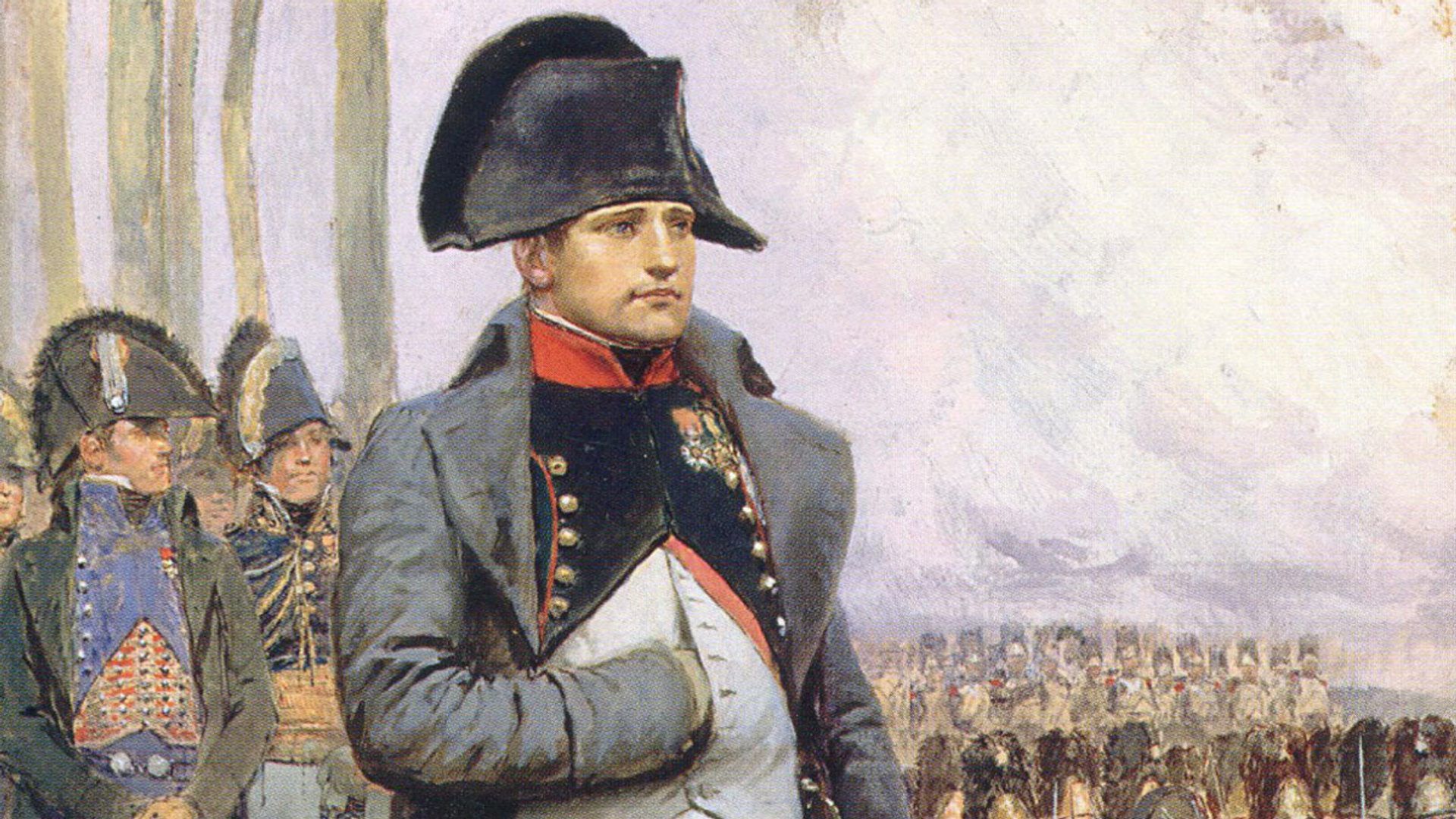Napoleon Bonaparte, a name synonymous with military genius and political acumen, shaped European history in ways few individuals ever have. Born on August 15, 1769, in Corsica, his early life was marked by ambition and a thirst for education that propelled him into the heart of the French Revolution. As we explore the various chapters of his life, from his meteoric rise in the military to his eventual crowning as Emperor of France, we uncover the complexities of his character, his far-reaching reforms, and the controversies that accompanied his reign. This comprehensive examination delves into his triumphs, failures, and the lasting legacy he left behind, making it clear why Napoleon continues to fascinate historians and enthusiasts alike.
Early Life and Education
Born on August 15, 1769, in the small coastal town of Ajaccio, located on the beautiful island of Corsica, Napoleon Bonaparte was the second of eight children in his family, and though his parents, Carlo and Letizia Bonaparte, faced numerous financial challenges, they ensured that their children received a quality education, which ultimately played a crucial role in shaping the young Napoleon's extraordinary ambitions and aspirations. Growing up in a politically charged environment, particularly after Corsica's brief struggle for independence from France, young Napoleon absorbed the fervor of revolutionary ideas, and by the time he was nine years old, he was sent to mainland France to pursue his education at a military academy, the prestigious Brienne-le-Château, where he honed his skills in mathematics, artillery, and strategic military thinking, laying the foundation for his future accomplishments. After five years at Brienne, he transferred to the École Militaire in Paris, where his dedication, intelligence, and relentless drive to succeed set him apart from his peers, allowing him to graduate and earn his commission as a second lieutenant in the artillery by the age of sixteen.
- Date of Birth: August 15, 1769
- Place of Birth: Ajaccio, Corsica
- Parents: Carlo and Letizia Bonaparte
- Siblings: Second of eight children
- Early Education: Brienne-le-Château
- Further Education: École Militaire, Paris
- Commissioned Rank: Second Lieutenant in Artillery
His time at Brienne-le-Château was not without its challenges, and although he faced significant hostility and discrimination from his French classmates due to his Corsican heritage, he demonstrated remarkable resilience, coping with adversity while secretly harboring his ambitions of greatness that would one day transform him into a military genius and the ruler of much of Europe. As a student at the École Militaire, Napoleon not only excelled academically but also developed lifelong friendships and connections that would later aid him in his meteoric rise through the ranks of the French military and government, showcasing his ability to forge alliances even at a young age. What remains particularly fascinating is how these early experiences, along with a profound understanding of military strategy and a passion for learning about history, contributed to his life-long pursuit of power, culminating in his unparalleled reign as Emperor of the French. In summary, Napoleon Bonaparte's early life and education laid the groundwork for what would become a significant and controversial biography, as his formative years were marked by struggle, resilience, and a relentless pursuit of knowledge, all of which would ultimately equip him with the tools required to navigate the tumultuous political landscape of his time. Recognizing the importance of education in shaping not only his military prowess but also his vision for governance, Napoleon would draw upon his rich academic background throughout his life, leading to considerable achievements on and off the battlefield, and the legacy he would ultimately leave behind in the annals of history. As we delve further into his military career and rise to power, it becomes apparent that the seeds of his ambition, planted during these early years, would yield fruit far beyond what anyone could have anticipated.
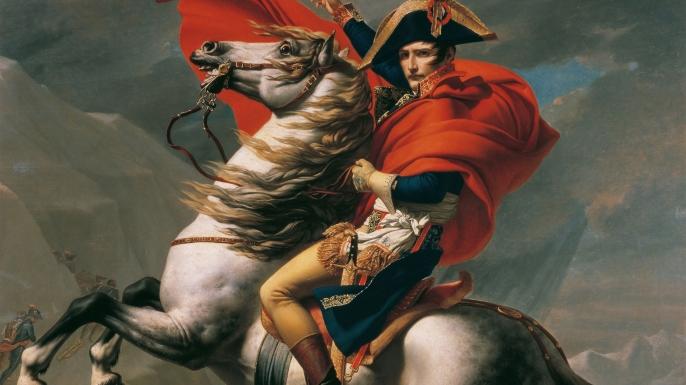
Military Career Beginnings
In the late 18th century, amidst the tumultuous backdrop of the French Revolution, the young Corsican, Napoleon Bonaparte, embarked upon a military career that would rapidly propel him into the annals of history, illustrating an exceptional blend of sheer ambition, unyielding determination, and remarkable tactical acumen, culminating in his eventual rise as one of the most influential figures of his time, as vividly detailed in his biography. Initially receiving an appointment as a second lieutenant in the artillery regiment, Napoleon’s early experiences within the revolutionary military structure not only honed his leadership skills but also provided him with a fertile ground for the development of innovative military strategies, allowing him to navigate the volatile political landscape with remarkable adeptness. In 1793, during the siege of Toulon, he distinguished himself through a brilliant display of tactical prowess, which ultimately led to his promotion to brigadier general at a mere age of 24, marking a significant milestone in the burgeoning career of the man who would soon ascend to the heights of power.
Strategic Victories and Rising Reputation
The successful campaign in Toulon served as an essential catalyst for Napoleon’s growing reputation, enabling him to secure a series of progressively higher commands and demonstrating his unique ability to inspire and lead troops in the face of daunting odds, a quality that would define much of his military career. Subsequently, in 1796, he was appointed commander of the French Army in Italy, where he launched a daring and highly effective campaign against the Austrians, showcasing not only his sharp intellect and strategic foresight but also his uncanny ability to outmaneuver enemy forces. This Italian campaign not only resulted in a string of decisive victories but also significantly expanded French territories and territories, consolidating Napoleon’s reputation as a formidable military leader and securing his status as a major political figure within France.
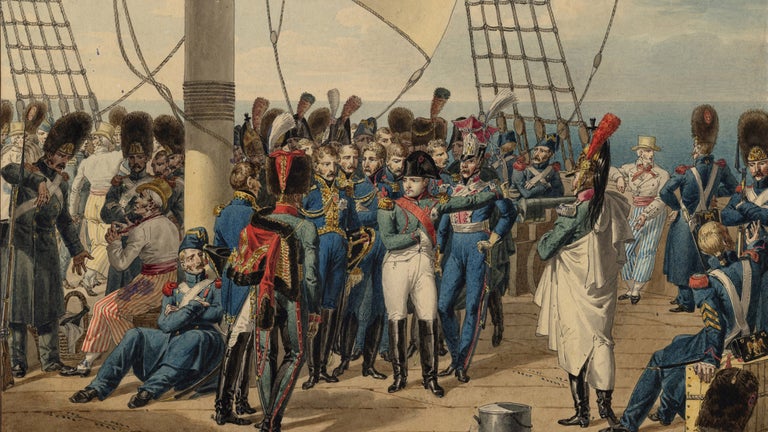
Formation of the Napoleonic Military Doctrine
The foundation of what would come to be known as the Napoleonic military doctrine can be traced back to these early experiences, as Napoleon’s innovative approach to warfare, which emphasized speed, decisive strikes, and the element of surprise, would lay the groundwork for the tactics that would characterize his future campaigns. This doctrine was not merely a reflection of his personal style but also a synthesis of Enlightenment principles that underscored the interconnectedness of strategy and tactics, emphasizing that the ultimate goal of warfare was the swift and decisive defeat of the enemy. As he continued to refine his strategies and expand his military prowess, it became increasingly evident that Napoleon was not just a military leader, but a visionary whose ideas would reshape the very nature of warfare, influencing generations of military strategists long after his time.
- Appointment as second lieutenant in the artillery.
- Significant role in the siege of Toulon.
- Promotion to brigadier general by age 24.
- Command of the French Army in Italy.
- Strategic victories against Austrian forces.
- Foundation of the Napoleonic military doctrine.
- Emphasis on speed, surprise, and decisive strikes.
- Influence on future generations of military strategy.
Rise to Power as Emperor
As the tumultuous corridors of post-revolutionary France echoed with the discontent and the aspirations of its citizens, it was within this hopeful yet chaotic backdrop that Napoleon Bonaparte, a man of humble yet lofty beginnings, began to seize the moment to orchestrate his ascendance to the heights of power, ultimately laying the groundwork for his coronation as Emperor of the French on December 2, 1804, in a ceremony that would forever alter the course of French history. It was not merely military prowess or political maneuvering that paved the way for Napoleon's rise, but rather a potent combination of charisma, keen strategic insight, and an ability to manipulate the prevailing political currents, all of which allowed him to ascend rapidly through the ranks and consolidate power in a nation reeling from the aftershocks of a bloody revolution. Napoleon's initial rise began in earnest during the coup of 18 Brumaire in 1799, a carefully orchestrated political shift that ultimately dismantled the Directory and replaced it with the Consulate, a structure in which Napoleon was named First Consul, a title that granted him unprecedented authority and influence while ostensibly preserving the facade of republican governance. This clever exploitation of the political landscape enabled him to position himself not only as a military leader but also as a statesman whose very existence was intimately tied to the future stability and glory of France, thus fostering a cult of personality that would soon envelop his rule. “The strong man is the one who is able to intercept at will the communication between the senses and the mind,” he famously stated, which encapsulates his belief that perception was as crucial to rule as any military victory. To understand the mechanics of Napoleon's rise, one must consider several pivotal steps he undertook, which included:
- Establishing a centralized administrative system that enhanced his control over the nation.
- Implementing the Napoleonic Code, which codified laws and ensured order, thereby winning public support.
- Securing strategic military victories that not only expanded French territory but also boosted national pride.
- Negotiating treaties that favored France, allowing him to position the nation as a dominant power in Europe.
In navigating these essential pathways, Napoleon simultaneously constructed a vision of France that blended revolutionary ideals with a new order, showcasing his capacity to adapt while appealing to both the revolutionary spirit and the need for stability among the populace. This dual approach not only fortified his position but also fostered widespread support, leading many to see him as the embodiment of the nation itself, a phenomenon that would culminate in his self-declaration as Emperor, transcending the role of a mere politician to become a figure of monumental significance in both French and world history. Ultimately, Napoleon’s rise to power as Emperor represents a critical juncture in the timeline of European history, wherein one man's ambitions, driven by a unique blend of intellect and charisma, reshaped not only the political landscape of France but also left indelible marks on the international stage, altering alliances and animosities that would echo through subsequent generations, thereby establishing a legacy thoroughly interwoven into the broader narrative of history. In his own words, he once declared, “There is no such thing as an accident; it is fate misnamed,” and indeed it was this very belief in destiny that seemed to propel him forward, transforming aspirations into reality and ultimately cementing his place as one of history's most formidable leaders.
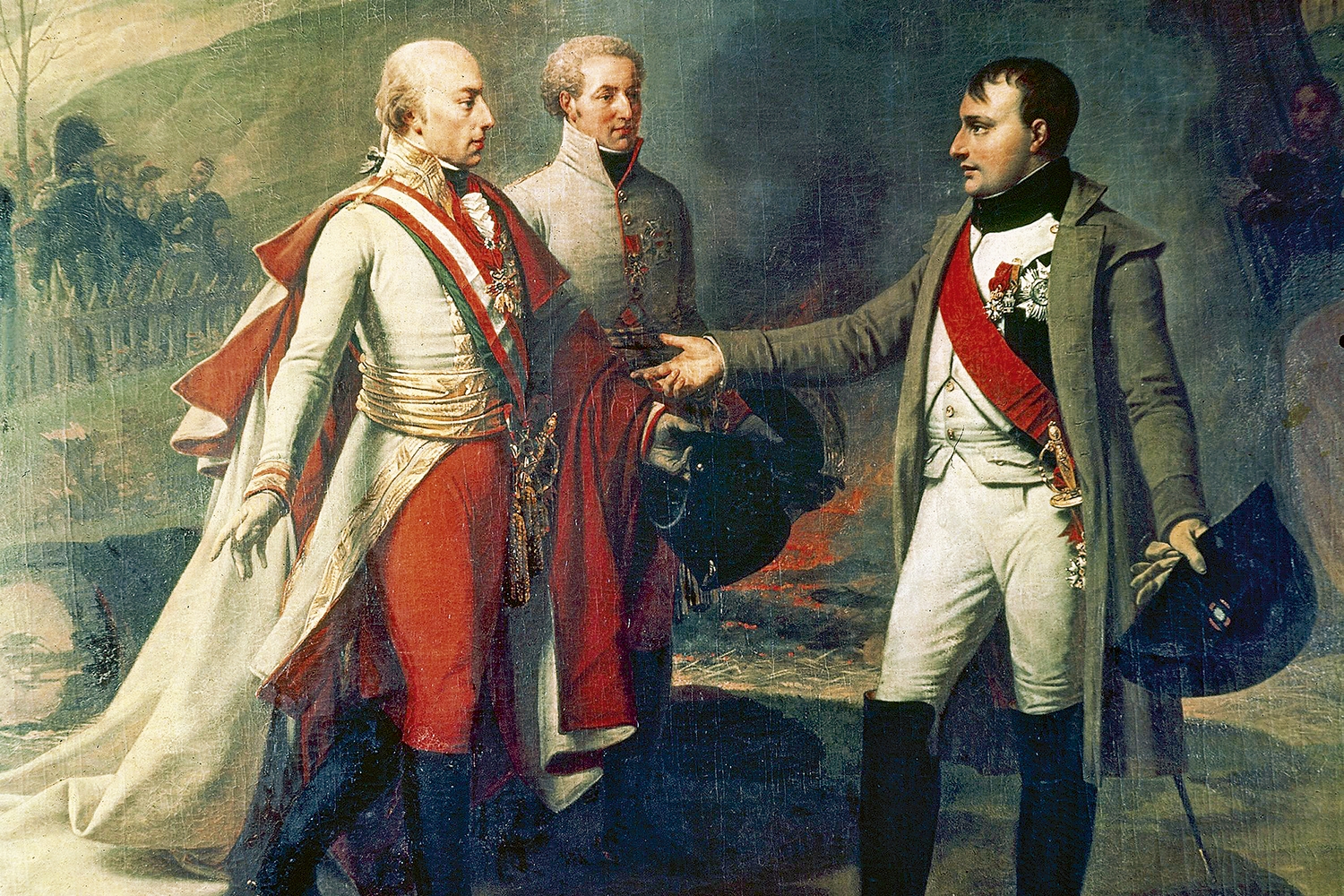
Napoleonic Wars
The Napoleonic Wars, a series of conflicts fought between 1803 and 1815, were largely shaped by the ambition, strategic genius, and formidable military prowess of Napoleon Bonaparte, whose relentless pursuit of dominance across Europe not only altered the geopolitical landscape of the continent but also initiated a new era of warfare, characterized by mass conscription, innovative tactics, and the swift mobilization of resources that would become a blueprint for future conflicts. As Europe was torn apart by military engagements and shifting allegiances, this period not only highlighted the extraordinary capabilities of the French military but also underscored the resilience and adaptability of its adversaries, painting a complex and often tumultuous tableau of the era. Quote: “The strong man is the one who is able to intercept at will the communications between the senses and the mind.” This insight from Napoleon not only reflects his understanding of military strategy and propaganda but also sheds light on the psychological aspects of warfare that he so masterfully exploited throughout the Napoleonic Wars, as he sought to manipulate public perception and morale, both on the battlefield and at home. The wars proceeded through several significant campaigns, including the notable Austerlitz in 1805, which is often cited as his greatest victory, where the inferior numbers of the French army were cleverly utilized to outmaneuver and decisively defeat the combined forces of Russia and Austria. In tracing the trajectory of the Napoleonic Wars, it is essential to note the following key events that shaped this tumultuous period:
- The War of the Third Coalition (1805), which resulted in French dominance after the Battle of Austerlitz.
- The Peninsular War (1808-1814), where the French faced fierce resistance from Spanish guerrillas and British forces.
- The disastrous invasion of Russia in 1812, which decimated the Grande Armée and marked the beginning of Napoleon's decline.
- The War of the Sixth Coalition (1813-1814), where a coalition of European powers finally overthrew Napoleon and led to his first abdication.
- The Hundred Days and the final defeat at the Battle of Waterloo in 1815, sealing his fate and marking the end of his reign.
The consequences of the Napoleonic Wars were profound and far-reaching, as the tumultuous clashes not only redrew the borders of Europe but also set the stage for the emergence of new national identities and the rise of nationalism, which would echo throughout the continent for years to come. The wars ultimately led to the Congress of Vienna, where the major powers convened to restore stability and order, aiming to prevent the rise of another powerful figure like Napoleon, underscoring the pervasive and lasting influence of his actions on European politics. Thus, the Napoleonic Wars stand as a testament to the dynamic interplay of ambition, power, and the insatiable human desire for control, marking a definitive chapter in the biography of one of history's most enigmatic figures.
Domestic Policies and Reforms
During his reign, Napoleon Bonaparte implemented a series of domestic policies and reforms that significantly transformed the landscape of French society, as he believed that a stable government was essential for the success of his regime, and thus sought to centralize authority while promoting efficiency and modernization throughout the nation. One of his most notable achievements in this regard was the establishment of the Napoleonic Code, also known as the Civil Code of 1804, which not only unified the legal system across France but also emphasized principles such as equality before the law, religious freedom, and the protection of property rights, thereby laying the groundwork for a more coherent legal framework that had a lasting impact on many jurisdictions beyond France’s borders. Additionally, Napoleon’s educational reforms linked the curriculum to the needs of the state, paving the way for a standardized system of education that focused not just on the classics but also on scientific and technical subjects, aligning the educational output with the demands of a rapidly industrializing world. Furthermore, in his quest to enhance the quality of governance, Napoleon introduced various measures aimed at improving administrative efficiency, which included the reorganization of the local government structure into departments managed by elected officials and the promotion of merit-based appointments to positions within the civil service, thereby reducing the influence of corruption and nepotism that plagued previous administrations. Alongside these administrative reforms, he recognized the importance of infrastructure development; thus, huge investments were made in the construction of roads, bridges, and canals, which not only facilitated trade and commerce but also improved communication and transportation networks across the French territory, contributing to the nation’s economic growth and integration. The transition from feudal landholding systems to a more modern agricultural framework also reflected Napoleon’s vision for a prosperous nation, as he enabled peasants to acquire land ownership and implemented policies that encouraged agricultural productivity and innovation. - Key Domestic Policies and Reforms: - Establishment of the Napoleonic Code, which standardized laws and emphasized individual rights. - Reorganization of local government into departments and introduction of meritocratic civil service appointments. - Significant investment in infrastructure, including roads and canals, to boost trade and improve transportation. - Reforms in education to create a standardized system responsive to state and economic needs. - Transition from feudal landholding, granting land ownership to peasants for improved agricultural productivity. In addition to these reforms, Napoleon’s commitment to creating a more secular France led to the signing of the Concordat of 1801 with the Pope, which effectively reconciled the state with the Catholic Church while simultaneously affirming the state’s control over ecclesiastical appointments and church finances, showcasing his ability to balance religious authority with political power. This balance not only solidified his rule but also appeased a populace divided by religious affiliations, as he understood that religion played a significant role in the daily lives of the French people. Ultimately, while his domestic policies and reforms were aimed at consolidating his power and fostering a sense of nationalism among the French populace, they also laid the groundwork for a modern state that influenced governance models in numerous countries, thereby continuing to echo through history long after his exile and downfall.
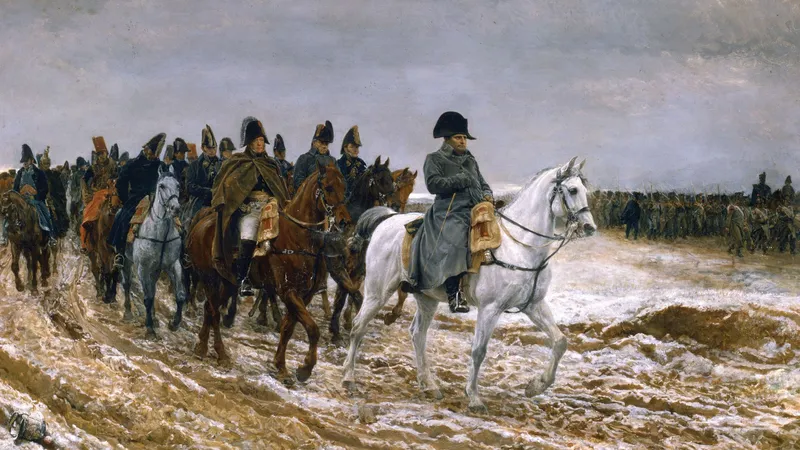
Downfall and Exile
The annus horribilis of 1814 marked a pivotal turning point in the illustrious yet tumultuous life of Napoleon Bonaparte, as the once-mighty Emperor of the French found himself grappling with the consequences of a series of miscalculations that fatally undermined his reign and culminated in his eventual downfall, a process that was exacerbated by the relentless pressure from the Sixth Coalition, a formidable alliance composed of several European powers including Britain, Russia, Prussia, and Austria, which conspired to bring an end to his ambitious expansionist endeavors across the continent. In the wake of the catastrophic defeat in the Russian campaign of 1812, which devastated his Grand Army, the waning support among key allies and the shifting tides of war led to defeats on multiple fronts, eroding the very foundation upon which his empire was built, and it became increasingly apparent that the illusions of invincibility were fast fading, leaving Napoleon isolated and vulnerable, ultimately paving the way for his abdication in April 1814. As his reign drew to a close, the Treaty of Fontainebleau was orchestrated, which mandated his exile to the remote island of Elba, situated in the Mediterranean Sea, a far cry from the lavish palaces and formidable military campaigns that had previously defined his existence; however, even in exile, Napoleon's indomitable spirit was evident as he managed to secure a lavish living arrangement, ruling over Elba as its sovereign with a small retinue of loyal followers. Yet, true to his nature, his aspirations for power could not be completely extinguished, and in February 1815, he orchestrated a daring escape from Elba, returning to France where he was met with wild enthusiasm from the populace, eager to support their erstwhile Emperor, which precipitated the brief but intense period known as the Hundred Days, a dramatic resurgence that would be short-lived. Nevertheless, his return marked the beginning of a new chapter that was anything but triumphant, for at the Battle of Waterloo, fought on June 18, 1815, Napoleon faced a coalition army led by the Duke of Wellington and Prussian Field Marshal Gebhard Leberecht von Blücher, and despite his strategic acumen and tactical brilliance, the outcome of the battle was disastrous, resulting in his ultimate defeat and the collapse of his brief return to power. Subsequently, the Allied powers, determined to eliminate the threat he posed once again, resolved to remove him to a far more distant and isolated location, leading to his exile to the remote island of Saint Helena, situated in the South Atlantic Ocean, where he would spend the remainder of his life in relative obscurity and confinement. The impact of his exile was far-reaching, not only sealing the fate of his personal ambitions but also altering the political landscape of Europe, as nations sought to redefine their relationships, drawing a definitive line under a period characterized by ambition, warfare, and significant social upheaval. In conclusion, the tremendous arc of Napoleon Bonaparte's life, marked by meteoric success and poignant decline, serves as a compelling testament to the fragility of power and the impermanence of glory, illustrating how a singular figure, once a dominant force on the world stage, could fall victim to the inexorable tides of fortune and historical shift, leaving behind a legacy steeped in both admiration and controversy. For those intrigued by this captivating saga, an exploration of his biography reveals not only the challenges and intricacies faced by a man who, at the pinnacle of his power, sought to reshape the very fabric of Europe but also the sobering reality of his eventual isolation and quietude on the windswept dominion of Saint Helena, an island that bore witness to the final chapter of a life defined by ambition and resilience.
- Napoleon's exile to Elba marked the end of his first reign.
- His dramatic escape and return to power briefly reignited hopes.
- The climactic Battle of Waterloo sealed his fate.
- Saint Helena became the final resting place of his ambitions.
Legacy and Impact on History
Napoleon Bonaparte, a figure whose very name evokes imagery of profound military prowess and revolutionary governance, has left a legacy that extends far beyond his time on the throne, and this legacy has been felt across continents and centuries, influencing not only the geopolitical landscape of Europe but also the evolution of modern political systems, law, and national identities in various countries. His implementation of the Napoleonic Code stands as one of his most enduring contributions, systematizing legal frameworks that prioritize individual rights over feudal privileges, which inspired numerous legal reforms in nations that sought to modernize their own judicial systems, thus cementing his role as a reformer of governance, even as he navigated the treacherous waters of absolute power.
- Legal Reforms: The Napoleonic Code serves as a foundation for modern legal systems in several countries.
- Nationalism: Napoleon's conquests and the subsequent rise of national pride laid the groundwork for the growth of nationalism throughout Europe.
- Military Strategies: His military tactics continue to be studied at military academies worldwide.
- Education System: The establishment of a structured education system in France promoted education as a public right.
- Economic Policies: His economic reforms aimed to modernize France's economy and align it with the rapidly changing industrial landscape.
The impact of Napoleon's strategies and ideologies spread far beyond Europe, as the ripple effects of his reign encouraged revolutions and reform movements across the globe, resulting in the emergence of various independence movements in Latin America, where leaders such as Simón Bolívar drew inspiration from his emphasis on liberty and military tactics. Furthermore, his authoritarian governance model, while firmly situated within the context of the tumultuous French Revolution, sparked debates about democracy and autocracy that continue to resonate in political discourses today, revealing the complex and often contradictory nature of his leadership. In Asia, the reverberations of his campaigns and the subsequent European power dynamics shifted colonial ambitions and reshaped diplomatic relations.
| Aspect | Impact |
|---|---|
| Legal System | Influenced modern legal frameworks worldwide. |
| National Identity | Promoted a sense of national pride and belonging. |
| Military Doctrine | Set the standards for modern warfare studies. |
| Education | Advanced public education initiatives in France and abroad. |
| Economic Development | Stimulated economic reforms and modernity in governance. |
In retrospect, the legacy of Napoleon Bonaparte is both admired and critiqued, resonating with the complexities of his character and actions, for while he achieved remarkable military victories and instituted significant reforms that fundamentally transformed France and various other nations, the shadow of his imperial ambitions and the wars that extended through Europe also reveal a cautionary tale about the impacts of consolidation of power and the costs of ambition. Thus, Napoleon's biography is not simply a tale of battles and conquests; rather, it encapsulates the intricacies of leadership, governance, and the perennial struggle for progress in a world often defined by conflict and power dynamics, ensuring that his influence continues to be a focal point of interest among historians and scholars alike. Ultimately, whether viewed as a hero or a tyrant, his indelible mark on history remains a testament to the multifaceted nature of legacy, as it is shaped by both triumphs and failures, ultimately guiding future generations as they navigate their own paths toward progress and identity.
Personal Life and Relationships
Napoleon Bonaparte, the formidable figure whose life was marked by unprecedented political and military accomplishments, also experienced a personal life that was as tumultuous and complex as his renowned military campaigns, with relationships that significantly influenced both his personal happiness and his ambitions for power, as well as his legacy which would ultimately shape the course of European history. His first significant relationship was with Joséphine de Beauharnais, a woman of remarkable charm and sophistication, who captivated Napoleon's heart, leading to their marriage in 1796, a union that was initially founded on passion but increasingly strained by political pressure and Joséphine's inability to bear him an heir, ultimately resulting in their divorce in 1810, despite the enduring affection Napoleon expressed for her throughout his life. Napoleon's quest for a suitable royal spouse, to solidify his dynasty, led him to marry Marie Louise, the Archduchess of Austria, a politically motivated union that bore him a son, Napoleon II, yet this relationship was overshadowed by his relentless ambition and frequent absences due to his military undertakings.
| Relationship | Years | Notable Aspects |
|---|---|---|
| Joséphine de Beauharnais | 1796 - 1810 | First wife, passionate love, divorce due to political reasons |
| Marie Louise | 1810 - 1821 | Second wife, political alliance, mother of Napoleon II |
As one delves deeper into the biography of Napoleon, it becomes evident that his relationships were not merely personal connections but rather strategic alliances that intertwined with his political aspirations, reflecting the era’s complex interplay between love and power, as well as the societal expectations of nobility during a transformative period in European history. Furthermore, the emotional toll of his relationships is illustrated through how they influenced his outlook and decisions; Joséphine's departure from his life not only left him heartbroken but also propelled him into alliances that would redefine France's imperial ambitions in a continuous pursuit of legacy that sought to rival that of the great monarchs of the past. Reflecting upon the intricate tapestry of his personal life, it is evident that while Napoleon aimed for greatness and military supremacy, his endeavors were invariably shaped by the love, loss, and relationships that accompanied him on his human journey, leaving a profound impact on the historical narrative that continues to captivate scholars and history enthusiasts alike.
- Joséphine de Beauharnais: A blend of passion and political ambition.
- Marie Louise: The pursuit of a political alliance through marriage.
- Emotional influences: How relationships shaped Napoleon's decisions.
Frequently Asked Questions
What year was Napoleon Bonaparte born?
Napoleon Bonaparte was born on August 15, 1769.
What significant role did Napoleon play in the French Revolution?
Napoleon rose to prominence during the French Revolution and played a crucial role in the military campaigns that followed, ultimately leading to his appointment as the First Consul of France.
What was the Napoleonic Code?
The Napoleonic Code, established in 1804, was a comprehensive set of civil laws that reformed the legal system of France, emphasizing equality before the law and the protection of property rights.
How did Napoleon expand the French Empire?
Napoleon expanded the French Empire through a series of military conquests across Europe, establishing dominance over various territories and forming alliances.
What led to Napoleon's downfall?
Napoleon's downfall was primarily due to his disastrous invasion of Russia in 1812, combined with growing opposition from other European powers.
Where was Napoleon exiled after his defeat?
After his defeat, Napoleon was first exiled to the island of Elba in 1814 and later to Saint Helena in the Atlantic Ocean after his escape and subsequent defeat at the Battle of Waterloo.
What legacy did Napoleon leave behind?
Napoleon's legacy includes his contributions to modern legal and civil systems, as well as the spread of nationalism in Europe, influencing many later political movements.


